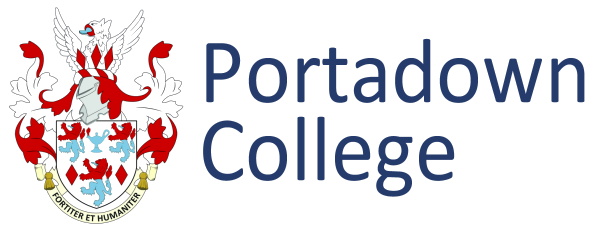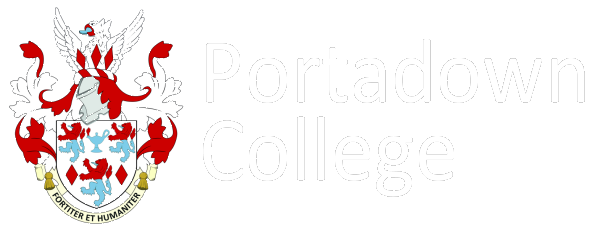Miss P Curry (Head of Department): GCSE and A Level
Drama and Theatre Studies
Students are encouraged to develop their interest in, and enjoyment of, drama and theatre, both through experience as audience members and through their development of dramatic and theatrical skills. Candidates do practical work which is focused on a final presentation to an external examiner, plus theoretical work on set texts and prescribed theatre practitioners.
AS and A2 Drama and Theatre Studies develop essential knowledge and understanding of drama texts and theatre in performance, encouraging candidates’ ability to respond critically and sensitively to a range of texts. Students should emerge as confident and independent interpreters of drama and theatre. They should assimilate theatrical concepts through practical and analytical exploration of dramatic styles and theatrical methods. The subject also develops key skills such as commitment to a group project, time management, self-discipline, working with others, problem solving and communication.
GCSE Drama
Examination Board: CCEA
What is GCSE Drama about?
You don’t have to have any previous experience of Drama in order to study it at GCSE Level. It will develop your confidence in working with others and in public speaking which will have a positive impact on your other subjects when you have to do group work or give presentations.
The key skills which you will develop through GCSE Drama include creativity, working with others, problem-solving, communication, negotiation, self-discipline, time-management, setting deadlines and meeting targets. Drama students should learn to understand the practical components of the theatre and develop the ability to understand and respond to a wide range of dramatic productions. The study of Drama at GCSE Level should also help to develop a lifelong interest in the theatre as there are many opportunities to visit the theatre both locally and further afield.
What topics will I study and how will I be assessed?
| Content | Assessment | Weighting |
| Component 1: Devised Performance Group performance of devised drama with accompanying candidate log. Candidates will choose a performance or design pathway for this component.
| Controlled Assessment with pre-release stimulus material.
Internally assessed, externally moderated through submission of DVD and candidate log. | AO1 – 15% AO4 – 10% Total 25% |
| Component 2: Scripted Performance Group performance of scripted drama Candidates will choose a performance or design pathway for this component. | Controlled Assessment. Internally assessed, externally moderated through visiting moderation. | AO1 – 5% AO2 – 30% Total 35% |
| Component 3: Written Examination | External Assessment 1 hour 30 minutes. | AO3 – 30% AO4 – 10% Total 40% |
The options available for practical work are performance or design.
The design options are:
- costume;
- lighting;
- multimedia (use of image, sound, text and/or video);
- set; or
- sound
The written examination involves questions on a set text: Juno and the Paycock by Sean O’Casey.
What can this subject lead to?
Students can study Drama and Theatre Studies at A Level. A joint degree in English and Drama is a regular choice for students at university. The skills and confidence acquired during the course are transferable skills and students have gone on to have a wide range of careers which have some link back to the course. These include law, public relations, teaching, arts administration, publishing and technical support in the theatre.
A GCSE in Drama can indicate to prospective employers that you are confident, articulate, have excellent communication skills and are capable of working well in group situations.
To study Drama pupils need to be very motivated, disciplined and be able to work with commitment in a group / team setting. They need to show enthusiasm, imagination and initiative in both the written and practical aspects of the course.
Trips to the Theatre
Students are encouraged to visit the theatre on a regular basis; trips are organised to theatres in Armagh, Belfast and Dublin. Students have also been encouraged to support the National Theatre’s NT Live project which streams live plays from London’s National Theatre into local cinemas. Students recently saw the award-winning Frankenstein and the Young Vic’s A Streetcar Named Desire.
More information on NT Live is available here.
In addition to this, pupils also have free access to Digital Theatre Plus – a subscription service which streams major London productions to be viewed online.
More information on Digital Theatre Plus is available here.
School Play
Drama students are encouraged to take part in the College play – either on stage or behind the scenes.
Drama and Theatre
Examination Board: WJEC
What is A Level Drama and Theatre about?
The A Level in Drama and Theatre involves analysis and understanding of plays, creating original drama and practical exploration and interpretation of extracts.
What will I study and how will I be assessed?
| AS Content | Assessment | Weighting |
| AS Unit 1: Theatre Workshop Non-examination assessment: internally assessed, externally moderated. | Learners will be assessed on either acting or design. Design skills which may be offered are:
| 24% of qualification |
| AS Unit 2: Text in Theatre Written examination: 1 hour 30 minutes | This involves a series of questions on a set text: Medea by Euripides. | 16% of qualification |
| A2 Content | Assessment | Weighting |
| A2 Unit 3: Text in Action Non-examination assessment: externally assessed by a visiting examiner. | Students are assessed on either acting or design. | 36% of qualification |
| A2 Unit 4: Text in Performance Written examination: 2 hours 30 minutes
| This involves a series of questions on two set texts: Sweeney Todd by Sondheim and A Day in the Death of Joe Egg by Nichols. | 24% of qualification |
Are there any particular qualities or skills I should have to study this course and to what kind of careers can it lead?
The key skills which you will develop through A Level Drama include creativity, working with others, problem-solving, communication, negotiation, self-discipline, time-management, setting deadlines and meeting targets. You will also develop confidence and your ability to be constructively critical.
A joint degree in English and Drama is a regular choice for students at university. The skills and confidence acquired during the course are transferable skills and students have gone on to have a wide range of careers which have some link back to the course. These include law, public relations, teaching, arts administration, publishing and technical support in the theatre.
Entry requirements: Grade B in GCSE Drama or Grade B in GCSE English Language. GCSE Drama is not obligatory.





